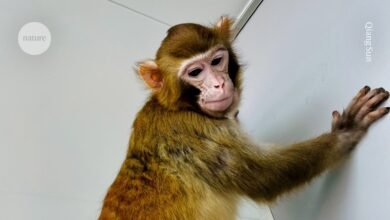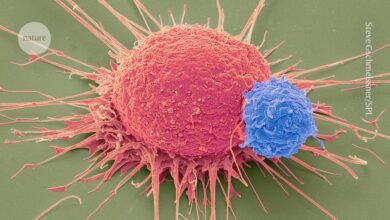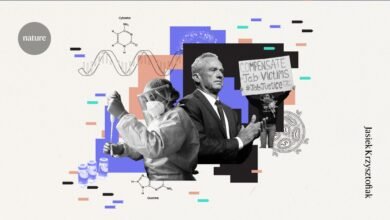Fasting can reduce weight — but also hair growth
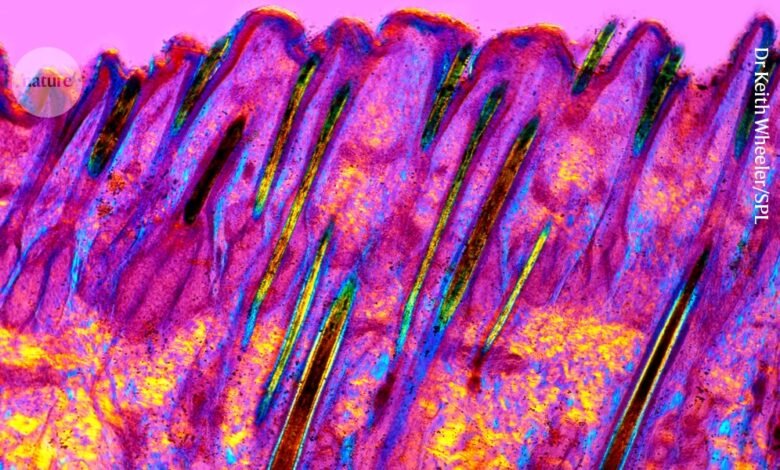
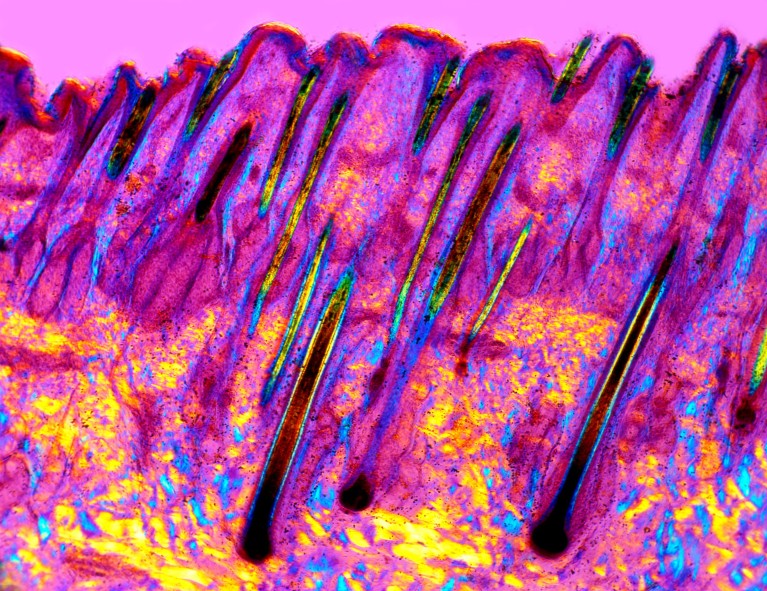
Human hairs sprout from follicles, which contain stem cells that are sensitive to dietary changes (artificially coloured).Credit: Dr Keith Wheeler/SPL
A popular weight-loss regimen stunts hair growth, data collected from mice and humans suggest1. The study’s findings show that intermittent fasting, which involves short bouts of food deprivation, triggers a stress response that can inhibit or even kill hair follicle stem cells, which give rise to hair.
The results, published in today in Cell, suggest that although short-term fasting can provide health benefits, such as increased lifespan in mice, not all tissue and cell types benefit.
“I was shocked to hear these results,” says Ömer Yilmaz, a stem-cell biologist at the Massachusetts Institute of Technology in Cambridge who was not involved in the study. “We’ve come to expect that fasting is going to be beneficial for most, if not all cell types and good for stem cells. This is the inverse of what we expected, and the finding seems to hold true in humans.”
Deliberate deprivation
During the past decade, intermittent fasting has become one of the most popular dieting regimens; by one count, about 12% of adults in the United States practised it in 2023. One of the most common forms is time-restricted eating, which involves eating only within a limited time frame each day.
Stem cells seem to be particularly vulnerable to changes in diet. For example, Yilmaz and his colleagues reported2 in August that stem cells in the guts of mice showed a burst of activity during post-fast feasting. This activity helped to repair damage in the animals’ intestines.
To learn whether dieting affects hair regrowth, which can be affected by stress, Bing Zhang, a regenerative biologist at Westlake University in Zhejiang, China, and his colleagues shaved mice and subjected them to one of two intermittent-fasting regimens: time-restricted eating and alternate-day fasting, in which animals fasted for 24 hours and then ate their regular diet for the following 24 hours. By the end of the three-month study, the dieting mice had not regrown as much hair as control animals that ate a similar number of calories, the authors found.
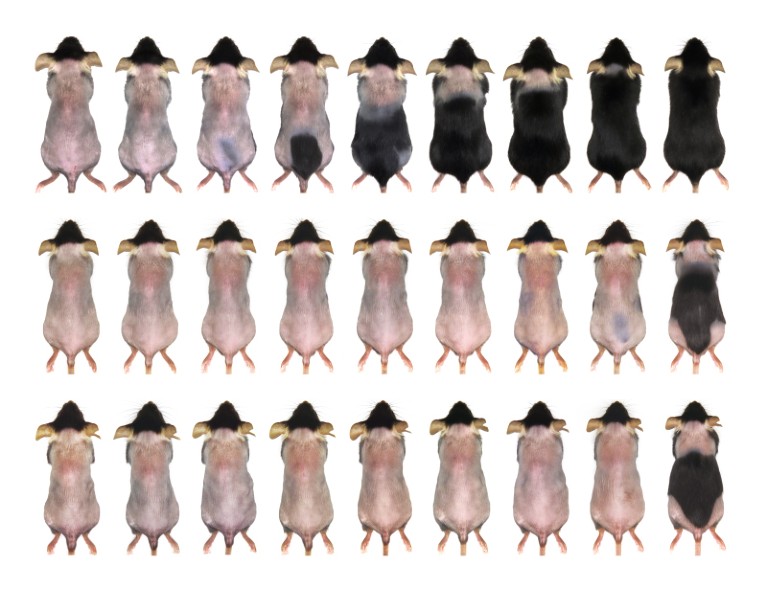
Hair regrowth over roughly 100 days was much quicker in mice allowed to eat whenever they wanted (top row) than in mice allowed to eat for only 8 hours per day (middle) or mice allowed to eat only every other day (bottom row).Credit: H. Chen et al./Cell
The researchers traced this effect to the death of hair-follicle stem cells. Further experiments showed that intermittent fasting kick-started communication between the adrenal glands, organs that produce stress hormones, and fat cells in the skin. This crosstalk caused skin fat cells to release molecules called fatty acids. The fatty acids disrupted the stem cells’ metabolism and caused damage that, in some cases, led to the stem cells’ death. Application of an antioxidant cream before and during the diet prevented stunting of the hair growth, suggesting that this effect is not inevitable.
To learn whether this effect extends to humans, the researchers randomly assigned 49 people to either an intermittent-fasting regimen or a control group, whose members ate without time restrictions. Hair growth in the fasting group was 18% slower than in the control group. Molecular tests found evidence that a mechanism similar to that observed in the mice could be responsible for this effect.
Reduced-calorie diet shows signs of slowing ageing in people
It is “intriguing” that these effects did not extend to the related stem cells that make and repair the outer layer of the skin, but those cells form an essential immune barrier, says Elaine Fuchs, a stem-cell researcher at the Rockefeller University in New York City who was not involved in the study. “At least some of us would agree that unless you are a musk ox on an Alaskan tundra, hair is dispensable,” Fuchs says. “In intermittent fasting, the body doesn’t know when it will next receive a meal, and the need becomes protecting the main core organs while dispensing with those that aren’t essential.”
Yilmaz and his colleagues also found a downside to intermittent fasting: the diet could prompt the development of precancerous intestinal growths if mice incurred a cancer-causing genetic change during the post-fasting period2. These findings should prompt further investigations of fasting’s effects on cells in the brain and the liver, Yilmaz says.


